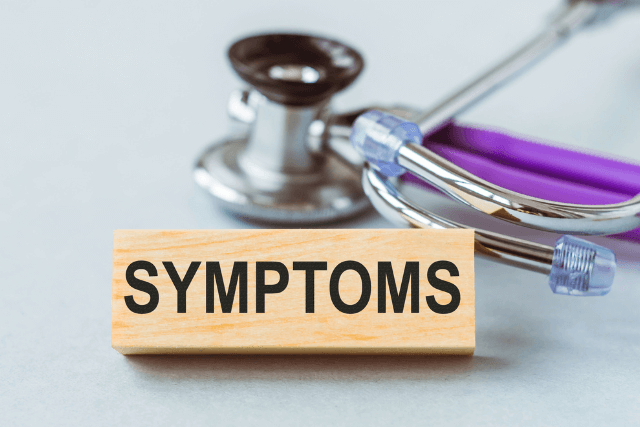Fistulas are abnormal passages or tunnels that develop between two parts of the body, often as a result of infection, surgery, or medical conditions like Crohn’s disease. These pathways can cause significant discomfort and lead to complications if left untreated. Understanding fistulas treatment is essential, as while traditional surgical methods have long been used to treat fistulas, recent advancements in medical technology have introduced more effective, less invasive treatments.
One such breakthrough is laser treatment, which offers numerous benefits over conventional surgery. In this blog, we will explore the different options available for fistulas treatment, focusing on how laser treatment works and why it has become a popular alternative.
What is a Fistula?
A fistula is an abnormal connection or passage between two organs or vessels that are usually not connected. These connections can form anywhere in the body, but they are most commonly found around the anal region, the gastrointestinal tract, and between other organs. Fistulas in the anal area, also known as anal fistulas, are the most common type, often occurring after an infection or abscess. The condition can cause painful symptoms such as swelling, discharge, and sometimes fever, which can severely affect a person’s quality of life.
Fistulas may vary in severity. While some are simple and have only one tract, others may be more complex, involving multiple tracts that can be challenging to treat. The severity of the fistula often determines the treatment approach.
Common Causes of Fistulas
There are several factors that can lead to the development of fistulas. Understanding Fistulas Treatment and their causes is important in preventing and managing the condition effectively. Some of the most common causes include:
1. Infections and Abscesses
Infections that develop in or near the anal region can lead to the formation of abscesses. If these abscesses are not treated properly, they may burst, forming a fistula.
2. Inflammatory Bowel Disease (IBD)
Conditions like Crohn’s disease and ulcerative colitis can cause chronic inflammation in the gastrointestinal tract, leading to fistulas in the digestive system.
3. Trauma or Surgery
Fistulas may develop as a result of physical trauma or complications during surgery, particularly surgeries involving the anal region or the gastrointestinal tract.
4. Cancer
Some cancers, particularly in the pelvic or abdominal areas, can lead to fistulas by invading surrounding tissues and creating abnormal connections.
5. Radiation Therapy
Radiation therapy can cause tissue damage, and consequently, lead to fistula formation.
Traditional Fistulas Treatment Options
Historically, the treatment of fistulas relied heavily on surgical procedures. These included methods like fistulotomy, where the fistula tract is surgically cut open to allow it to heal from the inside out. While this can be effective, it often involves significant risks, such as damage to the anal sphincter muscles, which can lead to incontinence.
Other traditional surgical treatments include seton placement, where a thread is inserted into the fistula tract to help drain the infected area and encourage healing. However, these procedures are typically invasive, require longer recovery times, and carry a higher risk of complications. For these reasons, many patients seek alternatives that are less invasive and offer faster recovery.
How Laser Treatment Works for Fistulas
Laser treatment is a modern, minimally invasive approach that is gaining popularity in fistulas treatment. The method involves the use of focused laser energy to treat the fistula without the need for large incisions. Here’s a look at how laser treatment works:
1. Minimally Invasive Procedure
During the procedure, a small laser fiber is inserted into the fistula tract. The laser energy is precisely delivered to the affected area, allowing the tissue to heal without causing significant damage to the surrounding area. Unlike traditional surgery, there is no need for large cuts or incisions.
2. Targeted Healing
The laser energy heats up the tissue within the fistula tract, which leads to the gradual closure of the passage. The process is controlled, ensuring that only the affected tissue is treated, while surrounding healthy tissue remains intact. This targeted approach reduces the risk of complications.
3. Reduced Risk of Infection
The precision of the laser helps sterilize the treated area and, as a result, reduces the risk of infection, a common concern with traditional surgery.
4. Faster Recovery
One of the most significant advantages of laser treatment is the faster recovery time. Patients often experience less pain and can return to their normal activities sooner compared to traditional surgery. In some cases, patients may resume their regular activities within a few days.

Benefits of Laser Treatment for Fistulas
Laser treatment has several distinct advantages over traditional methods for fistulas treatment. Some of the key benefits include:
1.Minimally Invasive
Unlike traditional surgery, laser treatment requires only small incisions or no incisions at all. This reduces the risk of scarring and eliminates the need for stitches, making it a less invasive option.
2. Reduced Recovery Time
The minimally invasive nature of laser treatment means that patients experience less post-procedure discomfort and can return to their normal activities much quicker than with traditional surgery.
3. Lower Risk of Complications
Laser treatment reduces the risk of infection, bleeding, and damage to surrounding tissues, all of which are more common with traditional surgical methods.
4. Effective for Complex Fistulas
Laser treatment is particularly effective for treating complex fistulas that may involve multiple tracts or are located in difficult to reach areas. It provides a high level of precision, ensuring that all areas of the fistula are treated effectively.
Post-Treatment Care and Expectations
After undergoing laser treatment for fistulas, patients can generally expect a smooth recovery process. However, like any medical treatment, understanding fistulas treatment is important to follow post-treatment care instructions to ensure proper healing and avoid complications. These include:
1. Pain Management
Although laser treatment is less painful than traditional surgery, some discomfort is normal. Pain medications may be prescribed to manage any residual pain.
2. Hygiene and Care
It is essential to keep the treated area clean to prevent infection. Therefore, patients should follow their doctor’s advice on how to maintain proper hygiene after the procedure.
3. Follow-Up Appointments
Patients will typically need to attend follow-up appointments to monitor the healing process. Consequently, these appointments allow the doctor to ensure that the fistula is healing properly and to check for any signs of recurrence.
Alternative Non-Surgical Treatments for Fistulas
While laser treatment is highly effective, Understanding Fistulas Treatment also involves exploring other non-surgical options available. These include:
1. Topical Medications
Doctors often use steroid creams to reduce inflammation and promote healing in mild fistulas; moreover, they combine them with other treatments for better results.
2. Seton Placement
As mentioned earlier, doctors use seton placement as a non-surgical method to treat more complex fistulas. While it is not a permanent solution, it can help manage symptoms and prepare the area for further treatment.
3. Stool Softeners and Fiber Supplements
Oral medications like stool softeners and fiber supplements prevent strain; therefore, they reduce the risk of fistulas from chronic constipation.
Conclusion
Fistulas can be a debilitating condition, but with advancements in medical technology, fistulas treatment has come a long way. Laser treatment has emerged as a revolutionary, minimally invasive option that provides effective results with minimal recovery time. Therefore, laser treatment offers high success, lower complication risk, and faster recovery for simple and complex fistulas than surgery.
By choosing laser therapy, patients can experience a more comfortable and efficient treatment process, enabling them to return to their normal lives quickly. If you suspect a fistula, schedule an appointment with us to explore the best treatment options for your condition.



